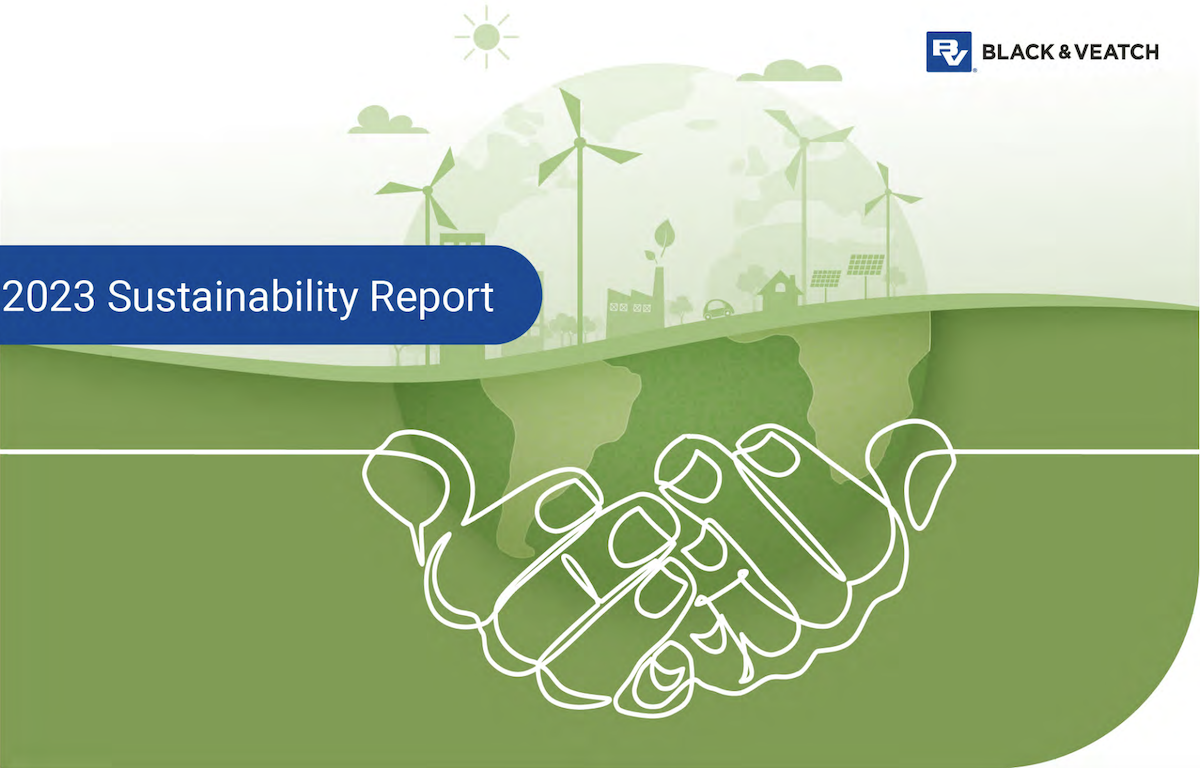Sustainability as a Business Imperative: Investing for Success
Published 09-19-23
Submitted by Black & Veatch

Originally published in Black & Veatch's 2023 Sustainability Report
By Deepa Poduval, SVP Global Sustainability Leader, Black & Veatch
In today’s world, sustainability has evolved from a corporate responsibility to a critical ethical and business imperative. To achieve sustainability goals effectively, organizations must both reexamine traditional thinking of sustainability as a cost-based, zero-sum game and expand beyond traditional return-on-investment metrics and approaches. It is important to adopt a balanced approach to sustainability, allowing for adaptability and maximizing overall success.
The Rise of Sustainability as a Business Imperative
In recent years, recognition of the urgent need to address sustainability challenges has been growing. Heightened awareness of climate change, resource depletion and social inequities has aligned consumers, investors and regulators on the ethical responsibility of businesses to operate in a way that preserves and protects critical resources. Companies that fail to prioritize sustainability risk losing customer loyalty, facing reputational damage and, potentially, encountering legal and financial consequences. By integrating sustainability into their strategies, organizations foster innovation, enhance their resilience, attract increasingly environmentally conscious customers and access new markets.
Moving Past Traditional Investment Metrics
While making the transition toward a more sustainable business, we risk a myopic viewpoint if we focus primarily on additional costs, as if sustainability were a zero-sum game that conflicts with the bottom line. This is especially true in the early stages of any large market shift when an uneven playing field exists regarding cost recovery as new business models and use cases are discovered. In that competitive environment, it is even more important to consider how the benefits from sustainable investments are measured, rather than focusing solely on the short-term costs associated with them.
Traditional rate of return metrics often fail to capture the broader beneficial impacts of sustainable investments. For instance, an analysis by the National Renewable Energy Laboratory (NREL)1 in February 2023 revealed that decarbonizing the U.S. power grid by 2035 could incur additional power system costs ranging from $330 billion to $740 billion, depending on infrastructure restrictions. However, when factoring in the avoided costs of climate change-induced damages such as floods, droughts, wildfires and hurricanes, the United States could save over $1.2 trillion. This translates to an overall net benefit to society ranging from $920 billion to $1.2 trillion. At Black & Veatch, we are working to fully estimate that value on behalf of our customers and for our own business and to capture it by designing, building and upgrading infrastructure assets to provide benefits of reliability, resilience and adaptability along with sustainability.

Making Strategic Sustainable Investments
Selective strategic levers can make the difference between success and failure when evaluating investments for sustainability:
- Identifying Cost Offsets: Numerous federal, state and local programs, along with tax credits and public/private funding, have been established to accelerate the adoption of sustainable solutions and technologies. It is essential to have the necessary resources to effectively assess and maximize these funding opportunities. Additionally, understanding customer priorities and values are important when determining how to address sustainability-related costs and whether they should be absorbed, offset or passed on to customers.
- Accessing Ecosystems: Where feasible, companies should consider collaborating with solution partners and off-takers to structure investments that can avoid individual companies bearing the entire cost and risk of funding and implementing sustainable initiatives. Strategically broadening a company’s approach to sustainable solutions by embracing additional stakeholders can allow for sharing of risk and access to bigger opportunities.
- Managing Multiple Priorities: Developing a robust approach to evaluating the economics of stacked energy, water, waste and land use solutions is essential. Some of these solutions may generate revenue streams rather than being solely cost items in a company’s profit and loss statement. Viewing these components in isolation can make financial performance seem uncertain. By considering the synchronized impacts of various interconnected elements, businesses can gain confidence and clarity on investment decisions and actions. Black & Veatch has experience that allows us to take a system approach to infrastructure design, looking across the nexus of energy, water and waste to structure solutions that leverage synergies that come from looking at these elements in tandem.
By embracing sustainability investments with a broader and balanced perspective, businesses not only align themselves with global goals for a better future but also ensure long-term success, resilience and relevance in an increasingly competitive marketplace. Black & Veatch leverages our expertise to create practical pathways for the success of our clients’ investments from strategy to execution.
To learn more, download the 2023 Black & Veatch Sustainability Report here.

Black & Veatch
Black & Veatch
Black & Veatch is an employee-owned engineering, procurement, consulting and construction company with a more than 100-year track record of innovation in sustainable infrastructure. Since 1915, we have helped our clients improve the lives of people in over 100 countries through consulting, engineering, construction, operations and program management. Our revenues in 2018 were US$3.5 billion. Follow us on www.bv.com and in social media.
More from Black & Veatch

